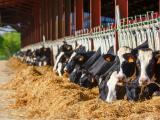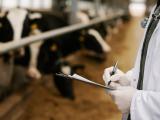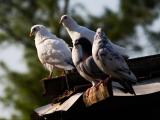Apr 29, 2009 (CIDRAP News) – To confront the spreading swine influenza H1N1 virus, the head of the World Health Organization (WHO) today raised the agency's pandemic alert level to phase 5, one notch below a full-fledged influenza pandemic, signaling that it's time for all countries to prepare.
The move comes just 2 days after the WHO raised the alert from phase 3, where it had been for several years, to phase 4.
"Based on assessment of all available information, and following several expert consultations, I have decided to raise the current level of influenza pandemic alert from phase 4 to phase 5," WHO Director-General Dr. Margaret Chan said in a prepared statement she read at a press conference in Geneva.
"All countries should immediately activate their pandemic preparedness plans," Chan said. "Countries should remain on high alert for unusual outbreaks of influenza-like illness and severe pneumonia.
Officially, a phase 5 declaration means that a novel virus has caused sustained community outbreaks in two or more countries within one WHO region. In response to questions, Chan signaled that the spreading cases in Mexico and the United States meet that criterion. The official count of confirmed US cases today rose to 91, including 51 in New York City.
The criterion for phase 5 is that "first we have to demonstrate human-to-human transmission in a sustainable manner and community spread, and we've seen this definitely in Mexico, and as information has emerged from US authorities, we are also seeing that" in the United States, Chan said.
"When we see two countries in one region providing evidence to that effect, we are moving into phase 5," she added.
Phase 6, the peak phase of the WHO pandemic scale, is defined as the time when the virus has caused sustained community outbreaks in more than one WHO region. Dr. Keiji Fukuda, the WHO's assistant director-general for health security, suggested that phase 6 may not be far off.
"A pandemic means we have spread of this new virus in multiple countries and multiple regions," he said in response to the question whether a pandemic is actually under way. "If this continues, we expect it will be in other countries and other regions."
He also called phase 5 "a situation in which the likelihood [of a pandemic] is very high to inevitable."
Chan, in her prepared statement, said, "At this stage, effective and essential measures include heightened surveillance, early detection and treatment of cases, and infection control in all health facilities.
"This change to a higher phase of alert is a signal to governments, to ministries of health and other ministries, to the pharmaceutical industry and the business community that certain actions should now be undertaken with increased urgency, and at an accelerated pace."
Chan said she has "reached out" to manufacturers of antiviral drugs to assess capacity and all options for boosting production and has also contacted vaccine manufacturers that can contribute to producing a pandemic vaccine. She also has talked with donor countries, the World Bank, UNITAID, and the GAVI Alliance about helping in the swine flu fight.
She warned that influenza "may cause mild disease in affluent countries, but more severe disease, with higher mortality, in developing countries."
"No matter what the situation is, the international community should treat this as a window of opportunity to ramp up preparedness and response," Chan said.
"Above all, this is an opportunity for global solidarity as we look for responses and solutions that benefit all countries, all of humanity. After all, it really is all of humanity that is under threat during a pandemic," she stated.
Chan said the WHO will need donated antiviral drug supplies to help needy countries. The agency had an oseltamivir stockpile of 5 million doses donated by Roche, but some of those were distributed to countries threatened by avian flu, leaving roughly 3.5 million doses now, she reported. "Clearly that's not enough," she said.
She said many private companies have told her they are prepared to provide resources to support the WHO's efforts to battle the pandemic: "Broadly speaking, not a single company said to me, 'We are not paying attention to the needs of the poor.'"
Citing other positives, Chan said, "The world is better prepared for an influenza pandemic than at any time in history."
She said preparations triggered by avian flu prompted many countries to develop and test preparedness plans, which has led to early detection of swine flu cases. She praised the responses of the Mexican, US, and Canadian governments in particular.
The WHO's Mike Ryan said the response of affected countries in providing information has been "amazing," adding, "I can certainly say that the world has changed in terms of the way we work."
When asked what governments should be doing now, Fukuda said they should make sure their pandemic plans are up to date and they are prepared to execute them. Further, governments should increase their disease surveillance, evaluate their ability to communicate with populations, and consider social distancing measures.
As for what individuals should do, the WHO officials repeated the oft-heard advice about handwashing and using good respiratory hygiene, but did not mention stockpiling food, water, and medicines—measures recommended by many preparedness experts.
In a WHO briefing earlier in the dady, Fukuda said the swine flu cases so far are generally similar to seasonal flu, but there is some evidence that diarrhea is more common than it is in seasonal flu.
He said the evidence so far shows that the virus can cause a range of illness from mild to fatal. Experts still have no clue why the severe cases seem to be almost entirely confined to Mexico.
In response to reports that Egypt may destroy its pigs in response to the outbreak, Fukuda said, "I want to make it very clear that we don't believe that the infections in people are connected to exposure to pigs. This is a different situation from the avian influenza, where people were clearly getting infected from birds. This is really a virus which is being transmitted from person to person."
See also:
Statement by Margaret Chan
http://www.who.int/mediacentre/news/statements/2009/h1n1_20090429/en/index.html



















